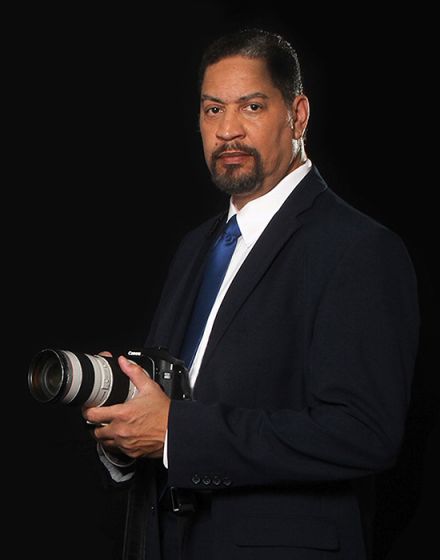
Haywood Galbreath, the groundbreaking photojournalist, actor, motivational speaker, media, and human rights advocate, has had a profound impact on the representation of people of color in the media. Born in Mayfield, Kentucky in 1956, Haywood recognized at a young age the power of media in shaping public perception. He made it his mission to combat the negative images of Black people by becoming a photojournalist, actor, and stuntman.
Throughout his career, Haywood has challenged the mainstream media's coverage of African Americans and demanded more impartial and fair representation. His efforts led to positive stories and photographs of African Americans being printed in major newspapers, and he became a role model for positive editorial content involving people of color.
Haywood has an influence extended beyond the media industry. He became the personal photographer, bodyguard, and assistant to Philip Michael Thomas of Miami Vice Fame, and he spoke out against the use of white stunt performers for Black actors and actresses. His actions opened doors for other African American stunt performers and photographers.
In 1993, Haywood made history by challenging the system of photo pools, which traditionally excluded Black-owned news organizations. He successfully fought for the inclusion of his Black-owned news and photo gathering organization in the coverage of the Simpson murder trial, capturing two of the most memorable images of the entire trial. His work during the trial, where he shot over eighteen thousand images, is considered one of the greatest documentation of a major event by an individual photojournalist in the 20th century.
Haywoods dedication to equality and access in the media industry continued throughout his career. He established the Minority Photo and Journalism Institute in 2004 to teach young kids of color photojournalism, photography, and broadcasting, providing them with a positive outlet for their talents.
Haywoods professional achievements include being the first African American-owned computerized news photo service agency, the first to use digital cameras, and the first to have permanent credentials and participate in a court case photo pool. He has covered major events such as the Emmy's, Breeders' Cup horse race, and Super Bowl, and has served as an official photographer for Presidents Barack Obama, George Bush Jr., William Clinton, George Bush Sr., and Ronald Reagan.
Haywood Galbreaths impact on the media industry and his advocacy for equal access and representation have made him a trailblazer and a role model for aspiring photojournalists and media professionals. His dedication to capturing the truth and promoting positive images of people of color has left a lasting legacy in the field of journalism.
Special Note: Even though Minority Photo and Journalism Institute was established to help young underprivileged kids of color Haywood turns to no child away or any individual seeking a positive outlet for their talents or has a desire to learn the rewarding hobby and profession of photography.
Haywoods career has been spent working for the rights of media access for all qualified media organization, especially minority owned media organizations that are often denied the privilege to cover events about minorities. He also is an advocate for the underprivileged and underrepresented of aspiring photojournalists in America.
Other professional highlights and awards of Haywood include








